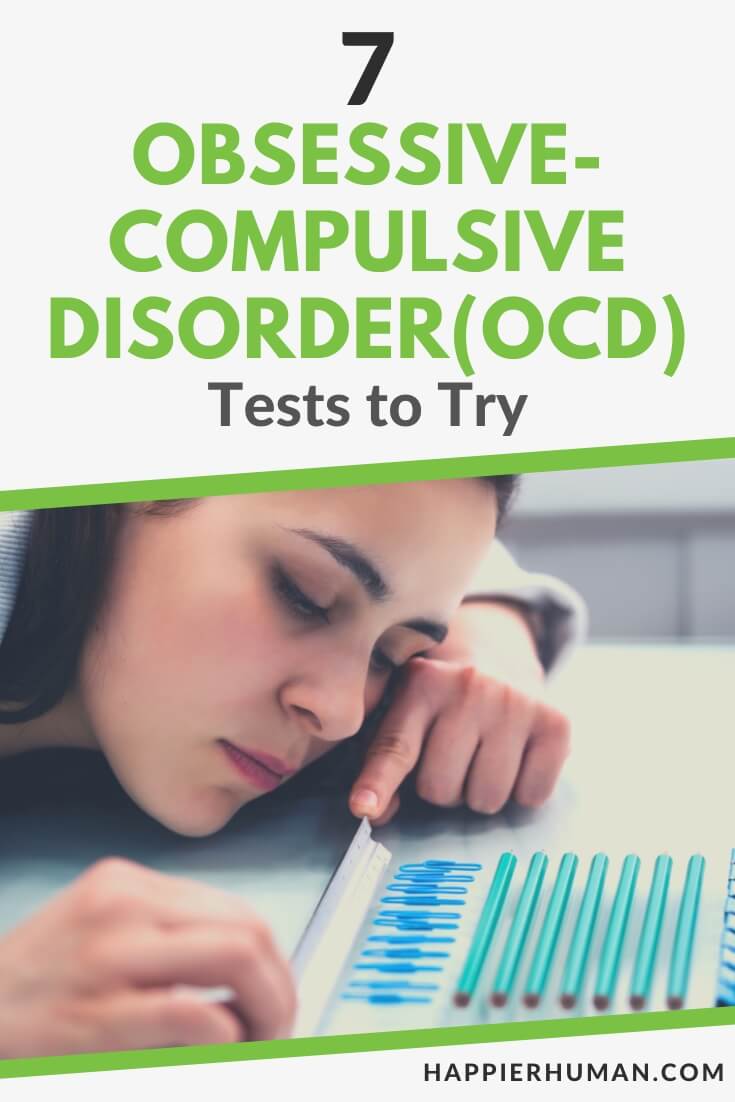Are you showing signs of having obsessive-compulsive disorder?
Do you often transform your anxious thoughts into repetitive tasks that are unreasonable to repeat?
Obsessive-compulsive disorder (OCD) is a mental health issue characterized by repetitive actions that seem impossible to stop. Mayo Clinic describes it as a “pattern of unwanted thoughts and fears (obsessions) that lead you to do repetitive behaviors (compulsions).”
Unfortunately, these behaviors worsen obsessions instead of alleviating them. They also start to interfere with your daily activities if not treated promptly.
In this article, we aim to help you determine whether you are exhibiting OCD symptoms. These OCD tests are not diagnostic tests, but they can help you identify if you need to see a health professional.
Check out this list and get busy getting healthy!
1. OCD Test by Mind Diagnostics
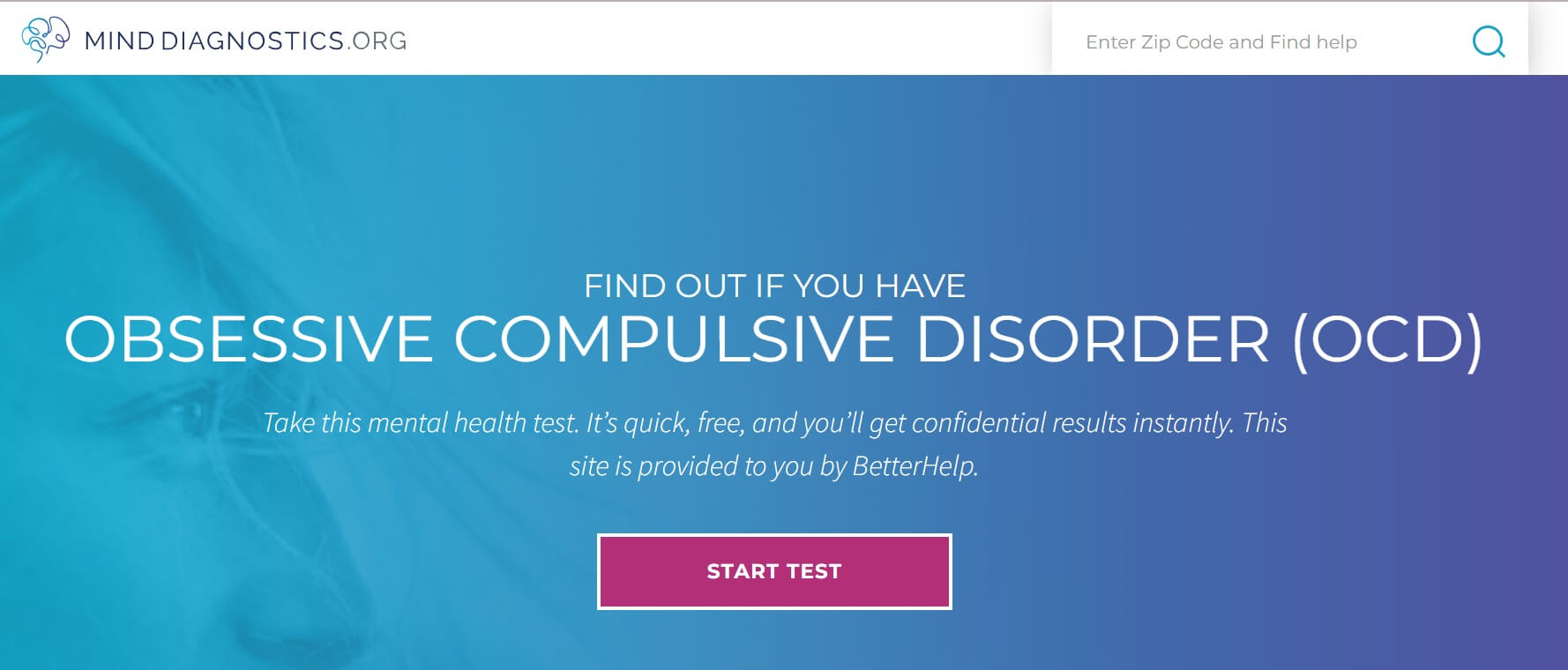
Like all other mental health and disorder online tests sponsored by Mind Diagnostics, this OCD test only aims to help individuals determine whether or not they are exhibiting OCD symptoms.
You can treat it as an OCD inventory, which may be a reliable source of your thoughts and emotions. That being said, it is still best to consult a doctor and discuss your results.
The test is comprised of 10 questions, each with five possible answers. They usually ask “to what extent” you do or think about a behavior.
When you’re done answering, you will be prompted to enter your email address for the results. You have the option to skip that part and move on to your chart if you want.
2. 3-Minute OCD Test by Psycom.net
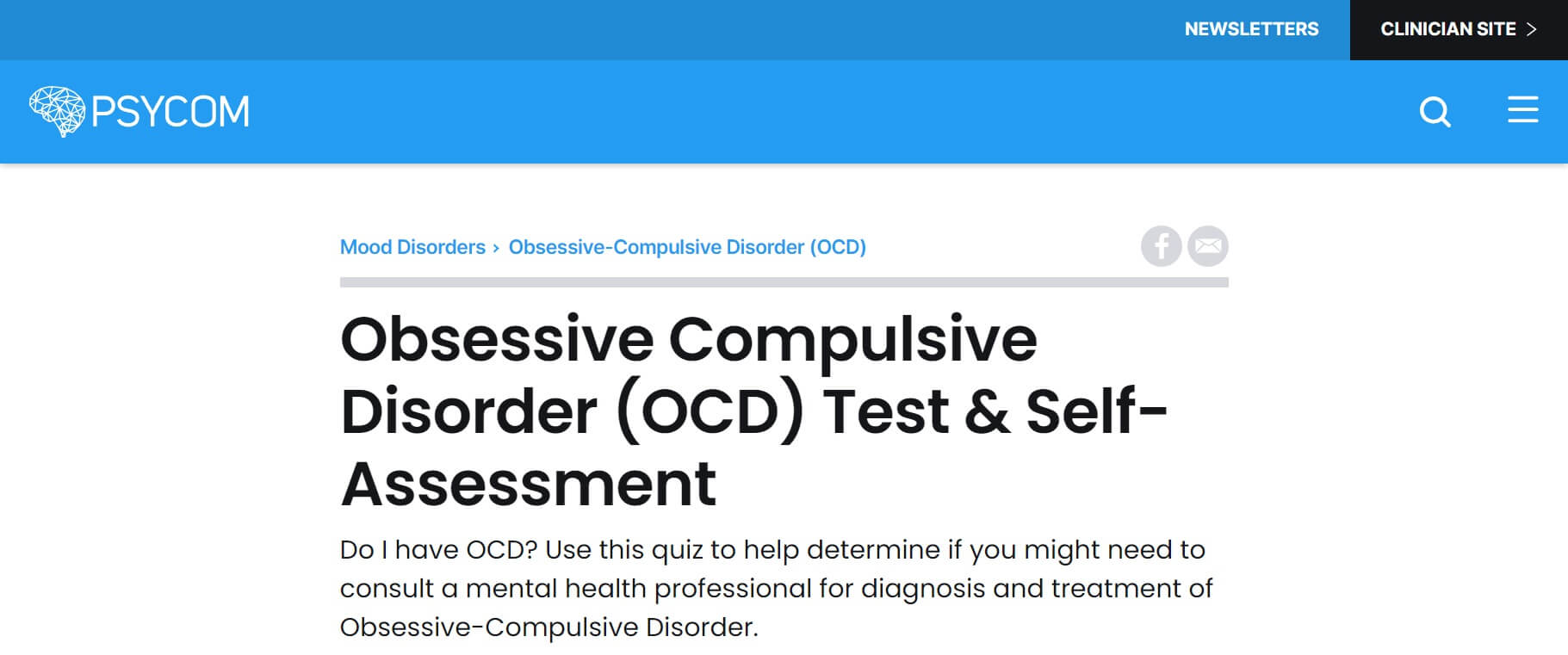
Psycom emphasizes that this 3-Minute OCD Test is not a diagnostic tool (none of the tests on this list are). It is just a means to help you determine if you are showing signs of OCD. The best way to be certain is always consulting a mental health professional.
The test consists of eight situational questions that commonly happen to people who have been diagnosed with OCD.
To receive the test results, you need to provide your email address in the space provided at the end of the questionnaire. Click submit and you will immediately receive an email from the site.
3. OCD Test (Online Self-Assessment) by Mantra Care
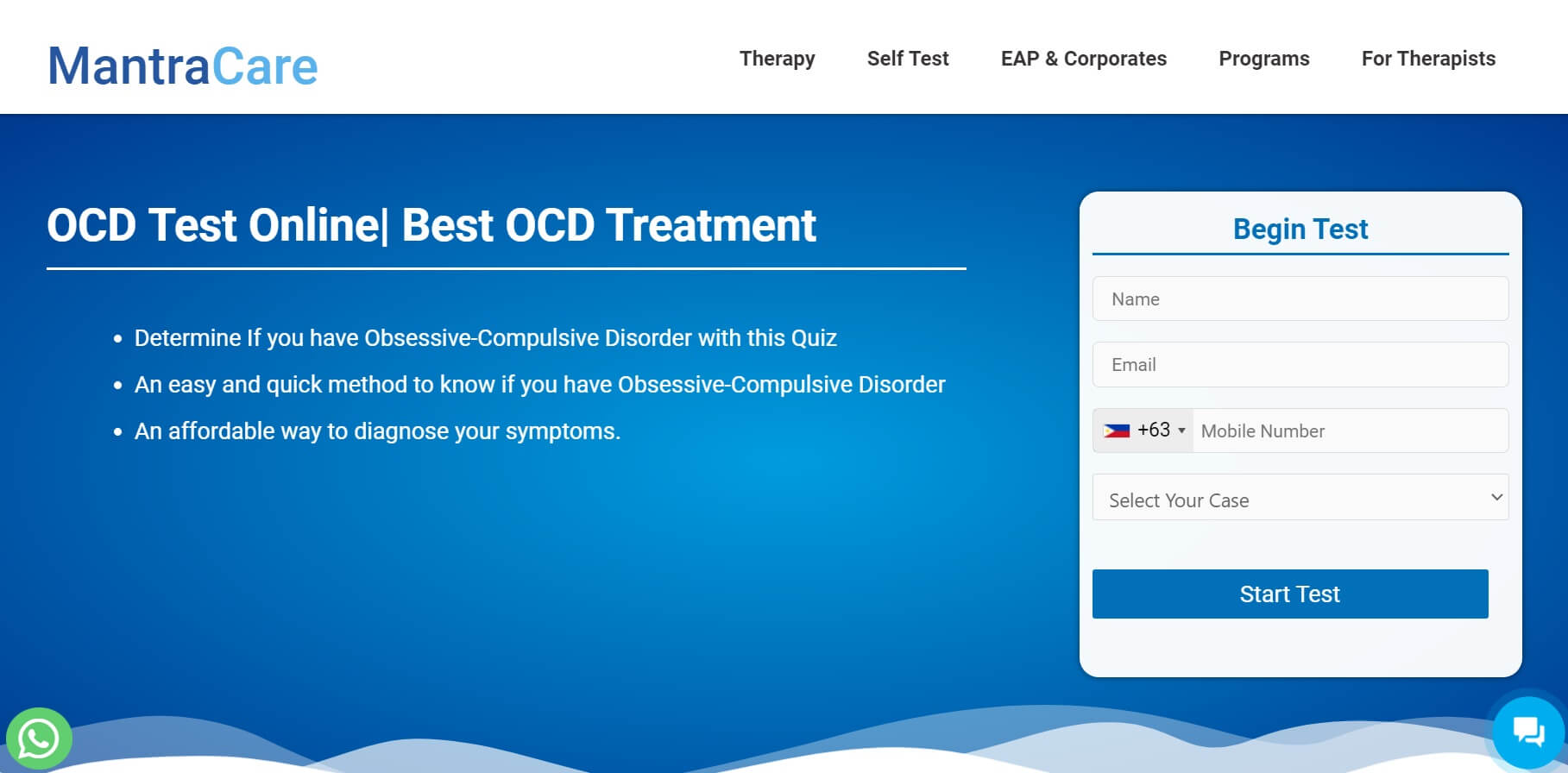
Mantra Care is different in the sense that they claim a bit of certainty in the tests they provide. They also offer other types of mental health tests, like anxiety, depression, and borderline personality disorder.
To start the OCD Test (Online Self-Assessment), you need to provide your name, email address, phone number, and case category. Click the “start test” button and you will be redirected to a set of 25 questions. When you finish, you need to confirm your email address and click the “next” button. A simple result page will show up, while detailed results will be sent to your email.
The questions are sort of in the form of affirmation statements. They will make you think and reflect on your actions.
4. OCD Test by OCD-Anxiety.com
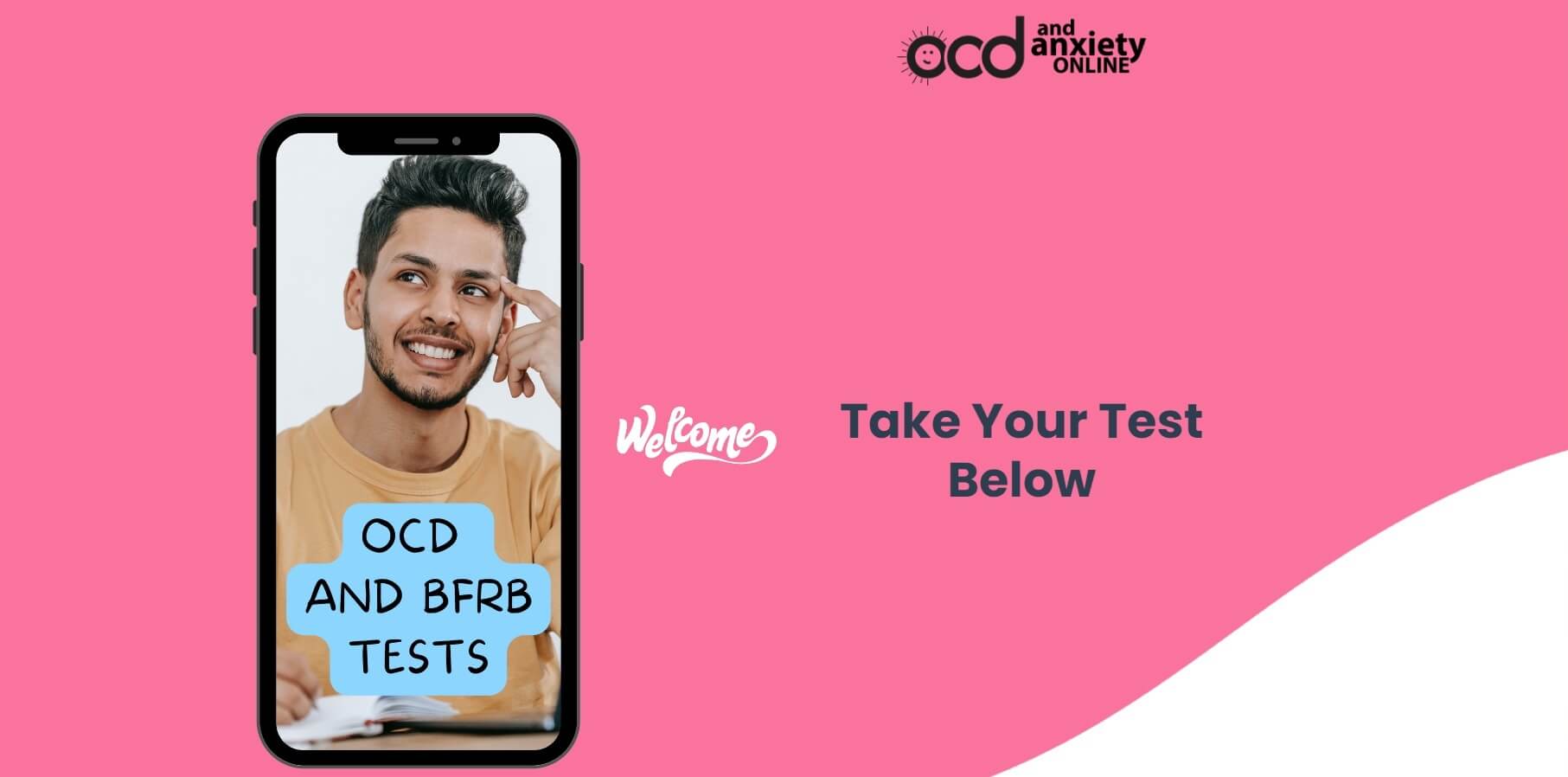
OCD Anxiety focuses on obsessive-compulsive disorder and its various types. When you visit the page, you might be surprised to learn that this particular mental health illness has a variety of different manifestations. For instance, there is general OCD, sexual orientation OCD, harm OCD, and relationship OCD.
Upon selecting the test you want to take, you will automatically be redirected to another site on a new tab. There are nine questions in the OCD test, and the final prompt asks you to provide your name and email address in order to receive your results.
Again, there is a disclaimer at the bottom stating that the test should in no way replace a diagnostic test from a mental health professional.
5. Online Test for OCD by Clinical Partners
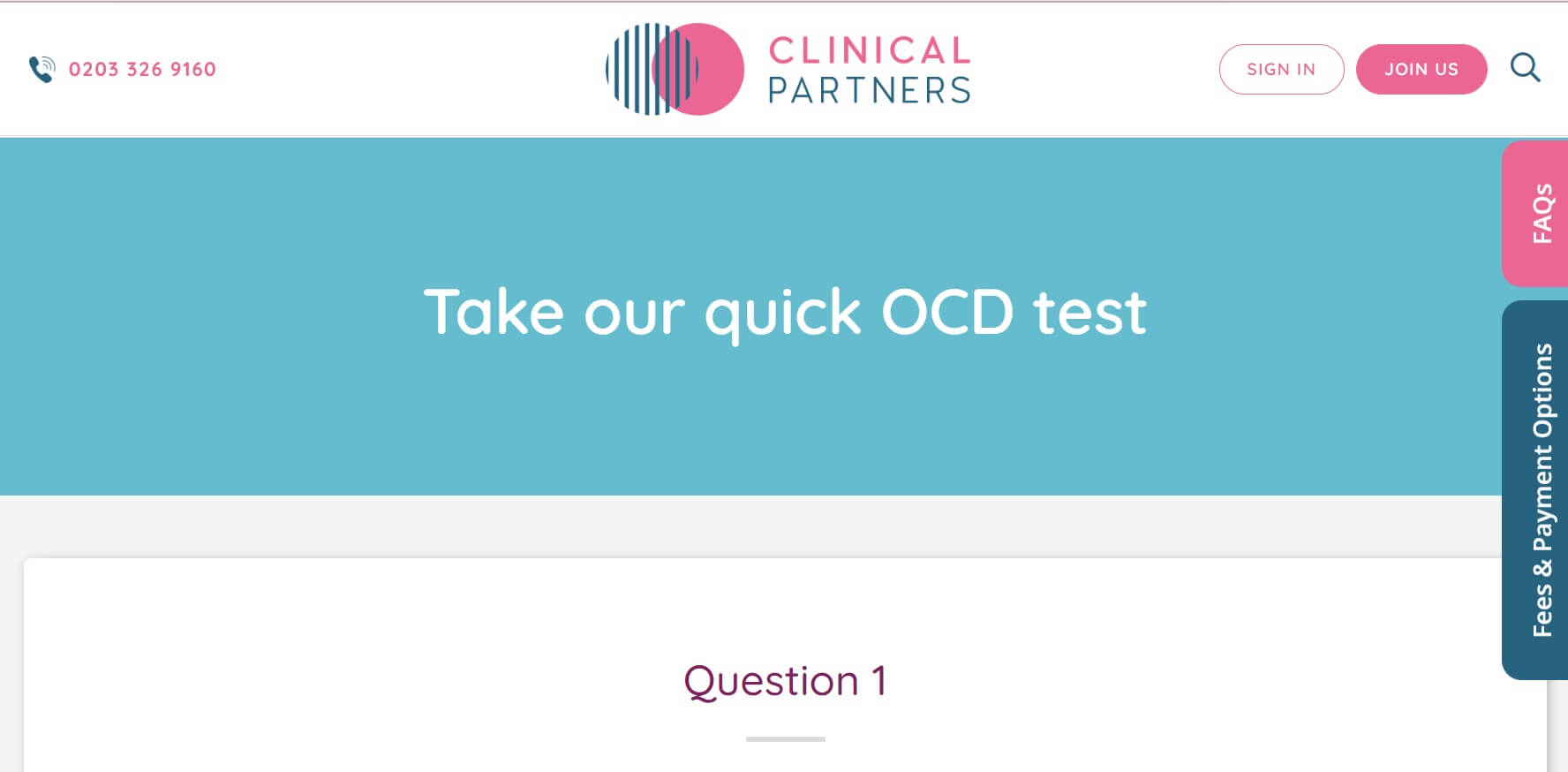
Clinical Partners gets straight into the questions with this Online Test for OCD. You will not find any discussion of OCD or article about the disorder. Instead, you will only see the instructions to keep in mind when you answer the questions.
There are 18 questions in an affirmation format. All you have to do is state if you do the action extremely, a lot, moderately, a little bit, or not at all.
Your results will be shown upon reaching the end of the questionnaire. The site will categorize you into mild to moderate, moderate to high, or severe OCD.
6. OCD Screening Quiz by Psych Central
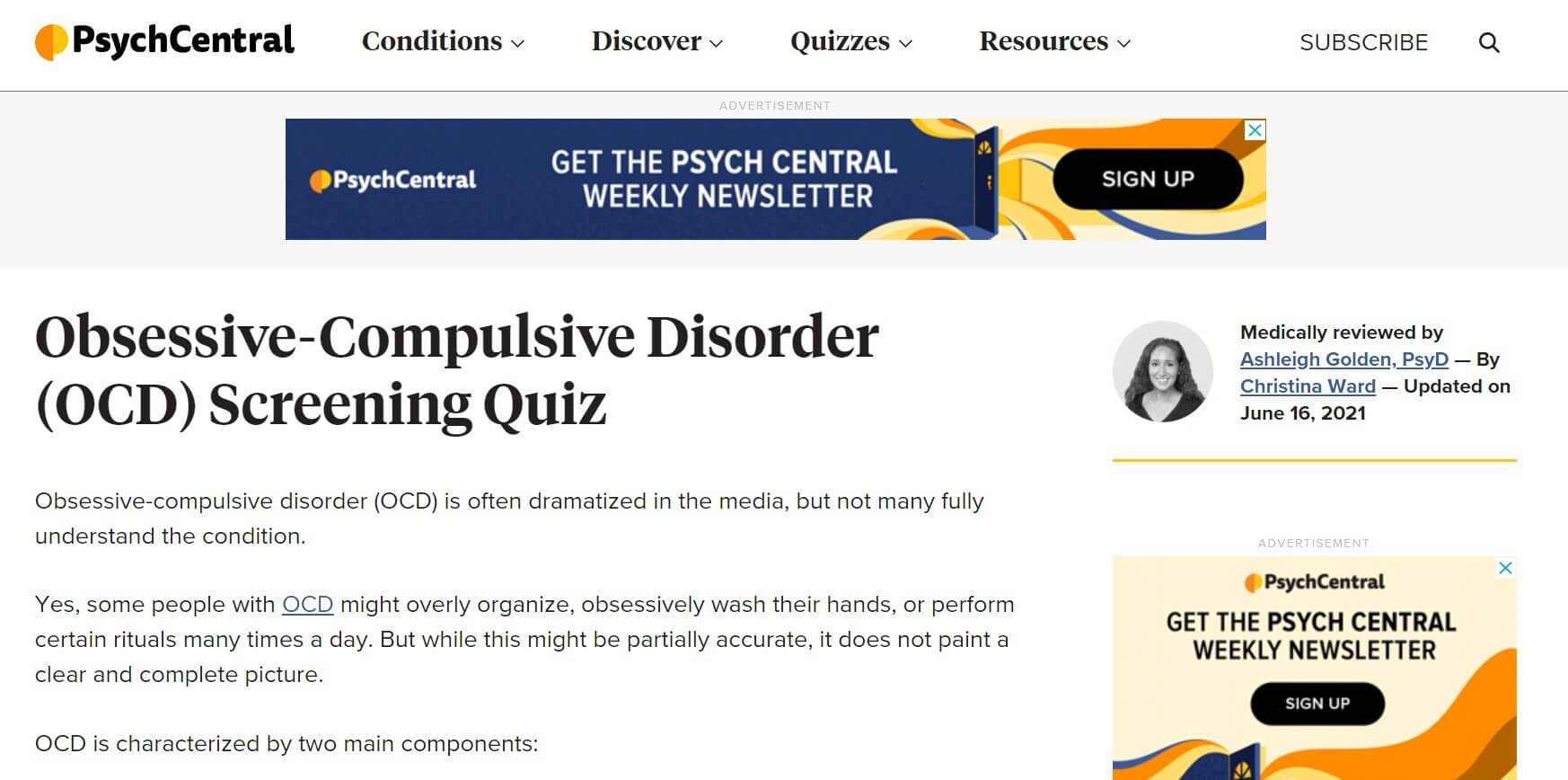
The OCD Screening Quiz by Psych Central is divided into three categories: unpleasant thoughts and images, worry about terrible things, and performance of certain acts repetitively. Overall, there are 20 questions that are answerable with a yes or no.
The results will show if you are at high risk, mid-risk, or low risk of having OCD. A brief explanation of your results is also provided.
7. OCD Self-Quiz by Anxiety Centre
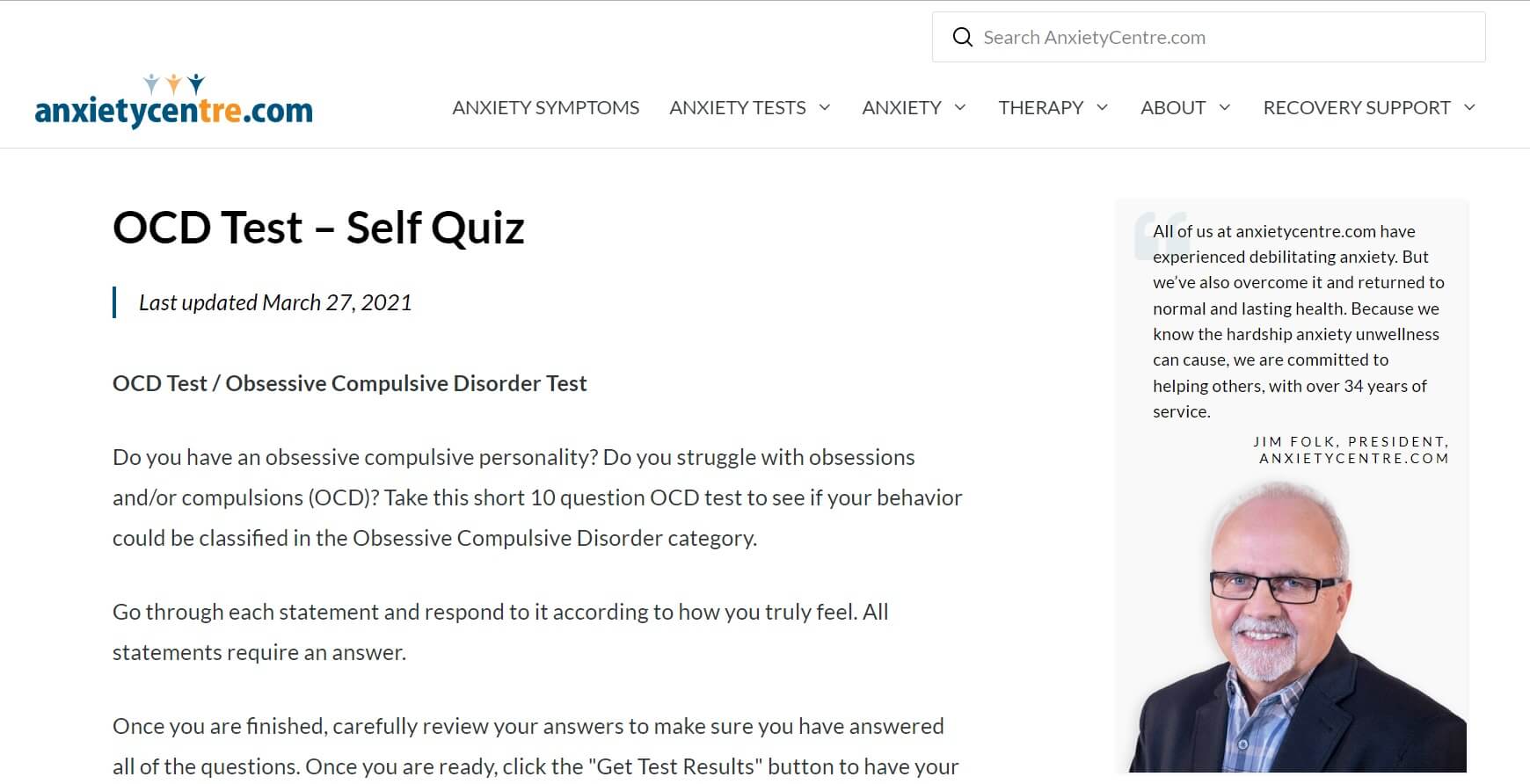
Anxiety Centre has the shortest quiz on this list. Its OCD Self-Quiz test consists of only of 10 questions, answerable by “all the time,” “a lot,” “sometimes,” “not often,” and “never.”
It is important to answer each of the questions based on how you truly feel. Try to be completely honest with yourself. When you are ready for your results, click the “Get Test Results” button and you will find them on the next page.
Final Thoughts on Obsessive-Compulsive Disorder (OCD) Tests to Try
As indicated earlier, these OCD tests are not intended to be diagnostic tools. If you think that you have OCD, you should consult a licensed mental health practitioner to be certain.
That being said, we hope that they were able to enlighten you and help you better understand your behavior.
Remember that having a mental health disorder is not something to be ashamed of. We are all unique in our own ways. Needing help with certain parts of our lives isn’t a sign of weakness—it is a form of self-care.
